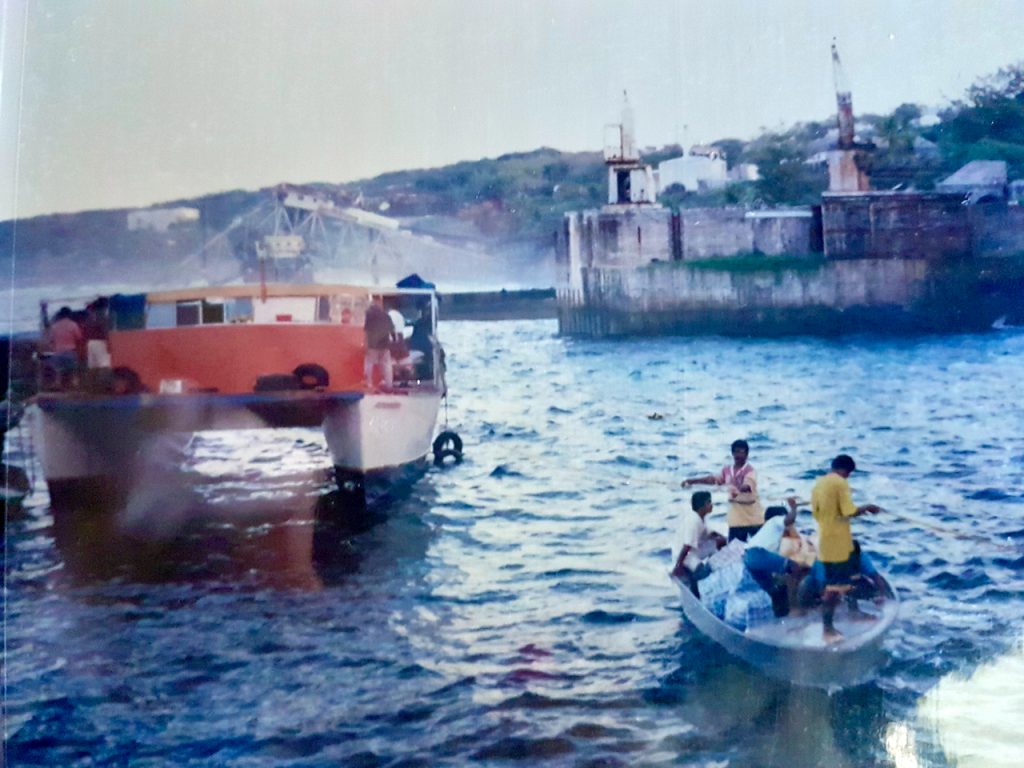Alan and Jeremy do the South Pacific
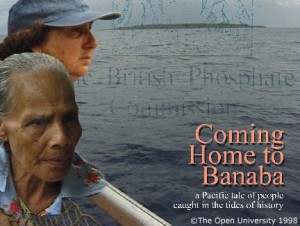 Coming Home to Banaba Images and quotes
Coming Home to Banaba Images and quotes
Transcript
The Making of …
(Prepared for Alan Marlow’s Open University retirement party, August 2020)
In 1997 I was a producer at The Open University Production Centre. I decided to make a documentary about a remote Pacific Island for the OU course ‘Pacific Studies’. It was to be a story about colonial exploitation, WW2 occupation and devastation, forced exile to Fiji, and environmental disaster. We would join a ‘Homecoming Trip’ of people who had lived in Banaba as natives or phosphate miners. The 2000 mile ‘Trip’ began in Fiji; we joined it in Tarawa.
For more details and images see my website at: banaba.org.uk
To keep costs within the limited budget, I asked for volunteers to come with me as camera/sound person: it would involve a 3 week trip working for 24 hours a day with no overtime and limited expenses. My risk assessment ran to 12 pages and was subsequently used by BBC Training as a model! The Union agreed (well, I was on the Branch Committee!) and there were two volunteers. One of them I wouldn’t have taken to Bletchley; the other was Alan.
The programme Alan and I shot is still valued and used by the Banabans as an account of the 1997 Homecoming Trip and of their people’s history. Of all my work at OUPC it is the programme I found most rewarding, both in the making and in it’s reception and widespread use.
Alan was a brilliant companion and an utterly professional cameraman throughout our very memorable experience. Alan proposed using entirely digital video equipment for the trip – a first for OUPC, and possibly for the whole BBC. It turned out to be an excellent choice, mainly because it was relatively lightweight. We took two cameras (“his” and “mine”) and as little kit as we could get away with. The only technical problem we had was when Alan’s camera shut down for 30 minutes because it got too hot – the temperatures were always well up in the 30s.
Here are some photos of Alan in action (TRIGGER WARNING: bare legs):
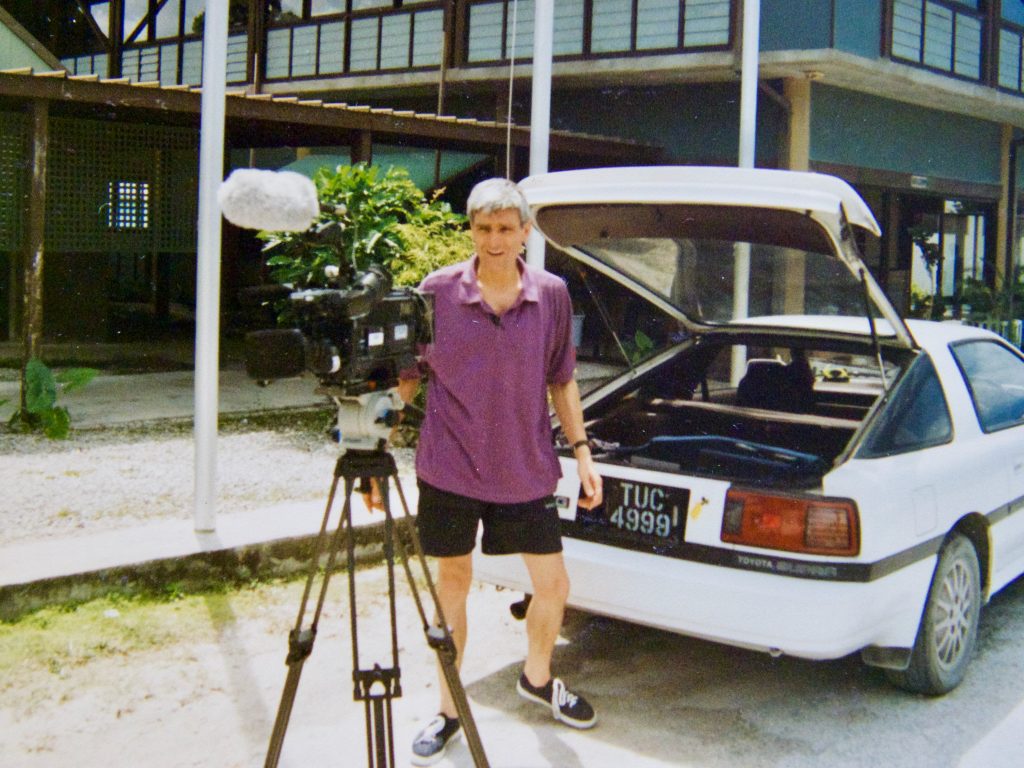
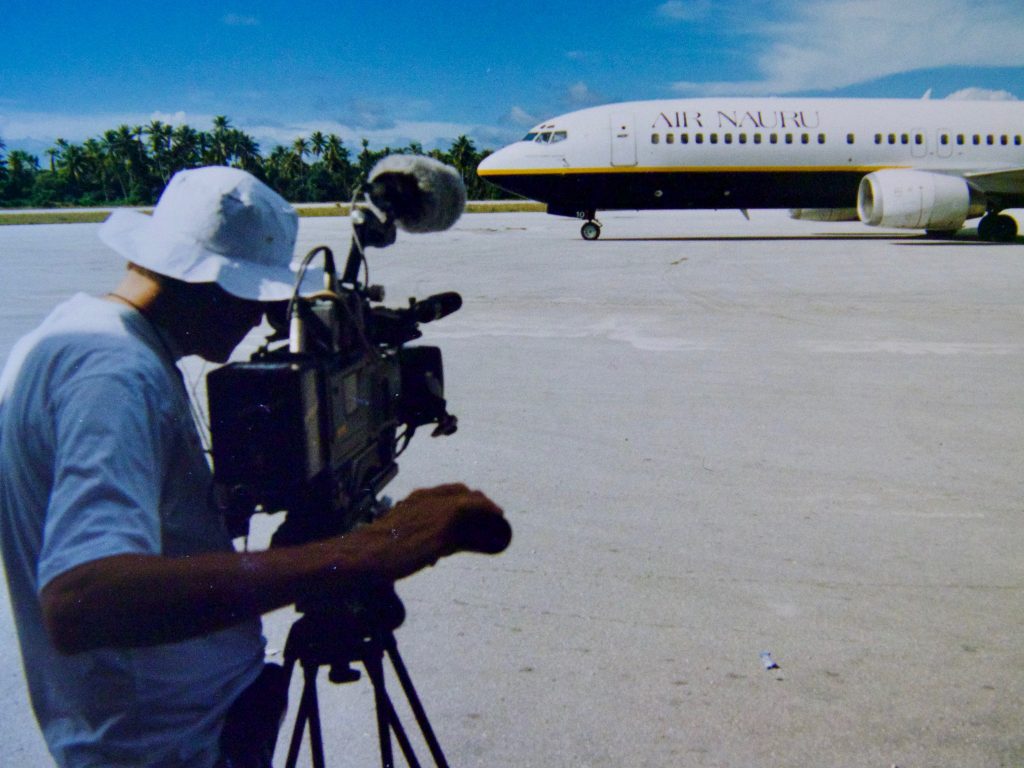
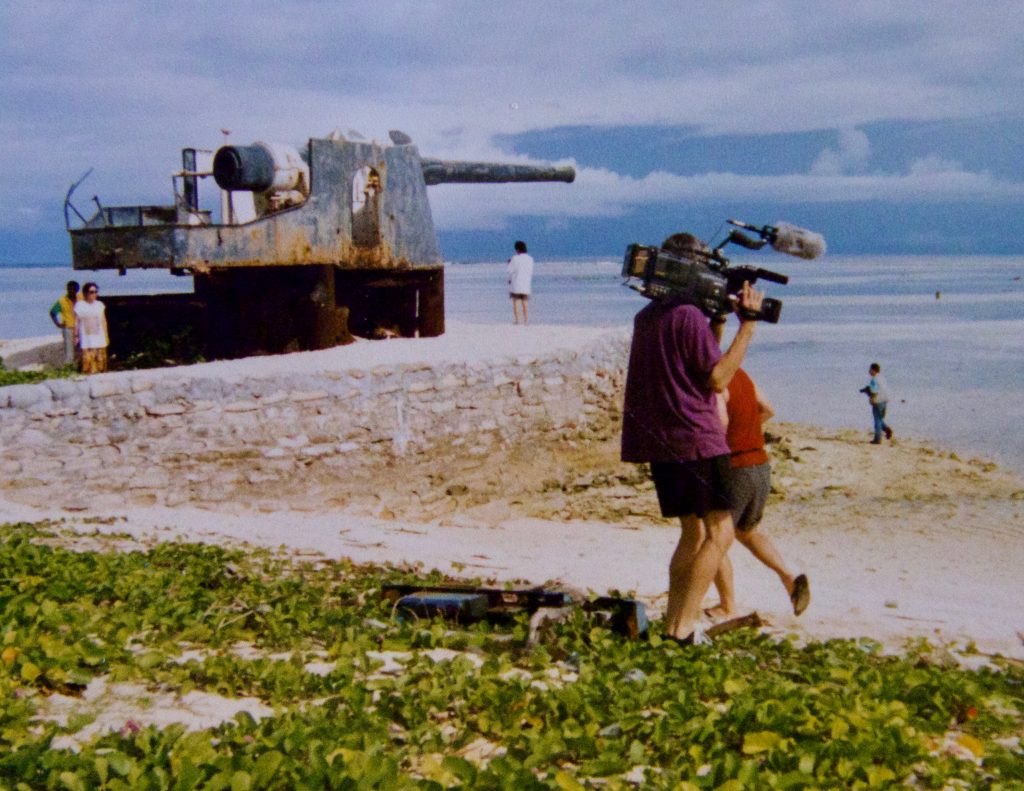
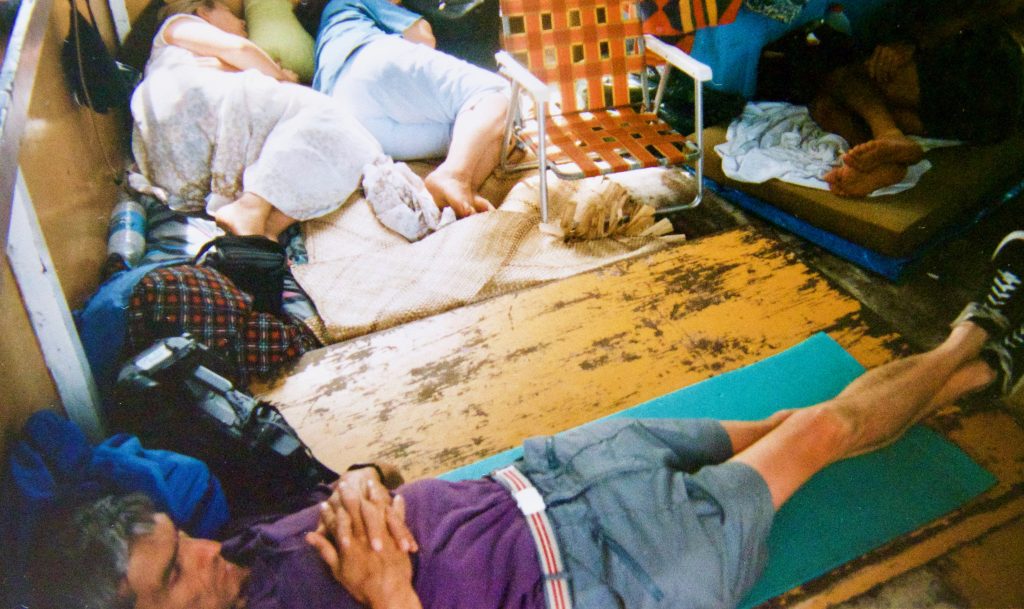
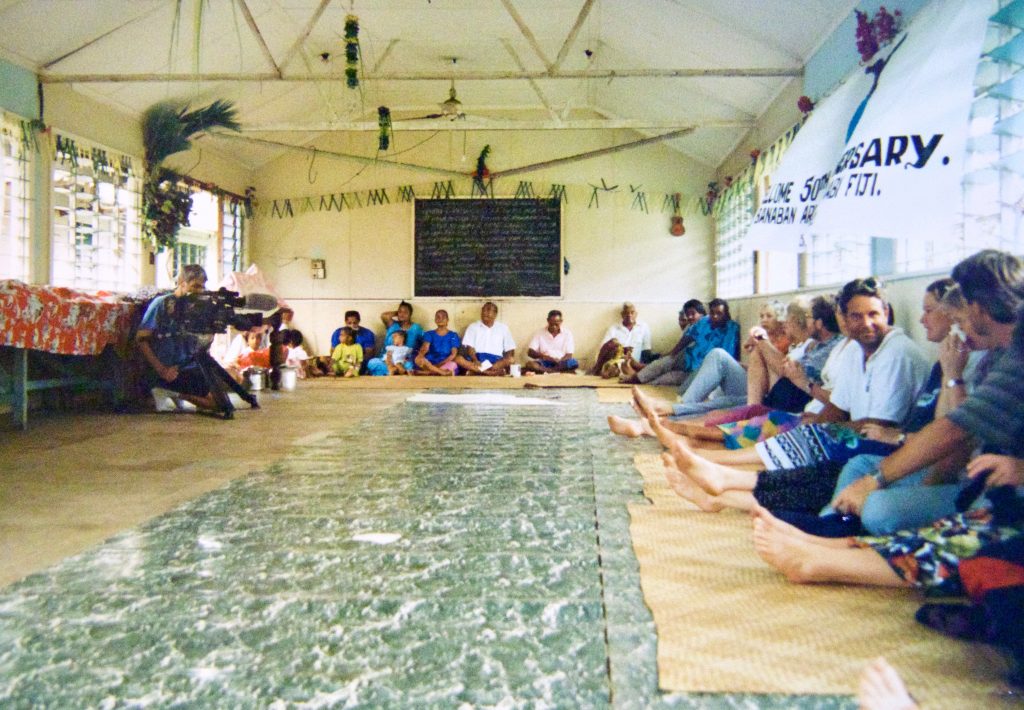
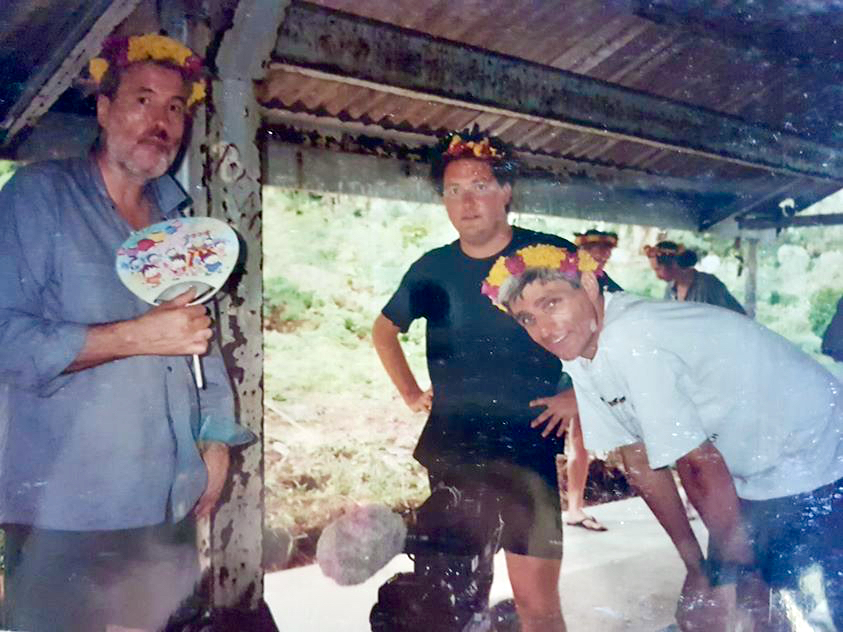
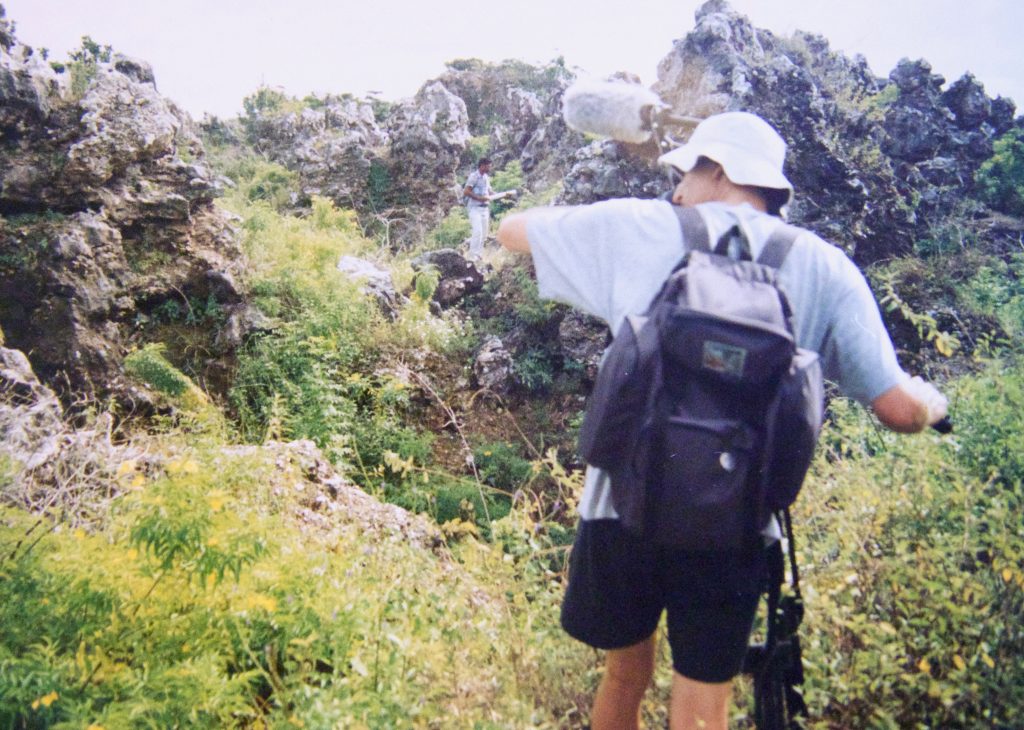
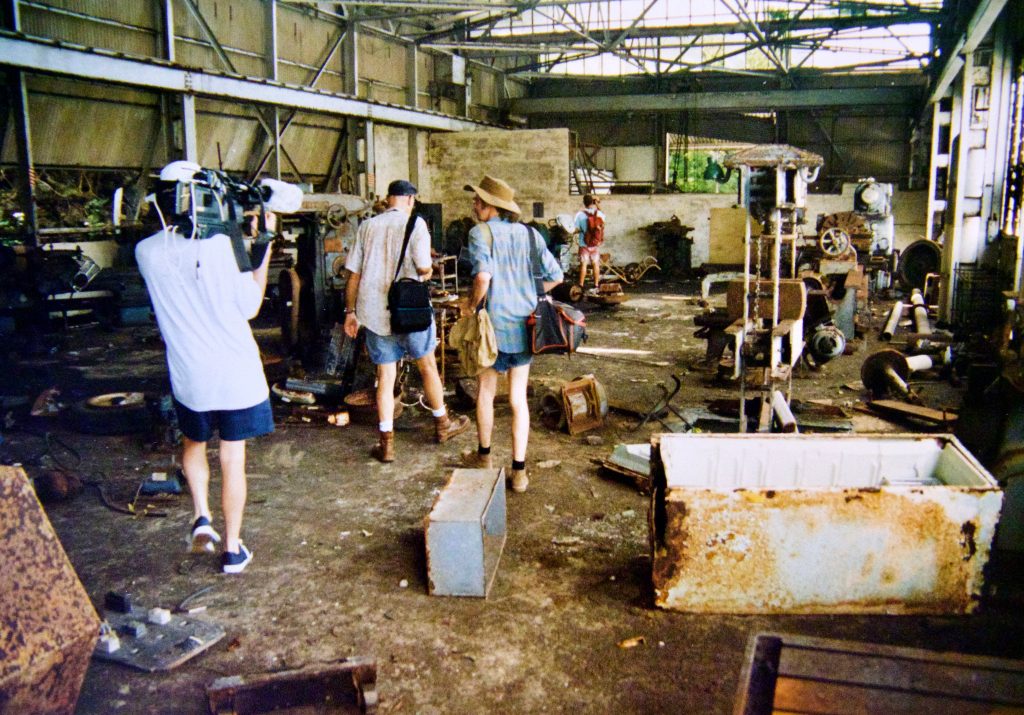
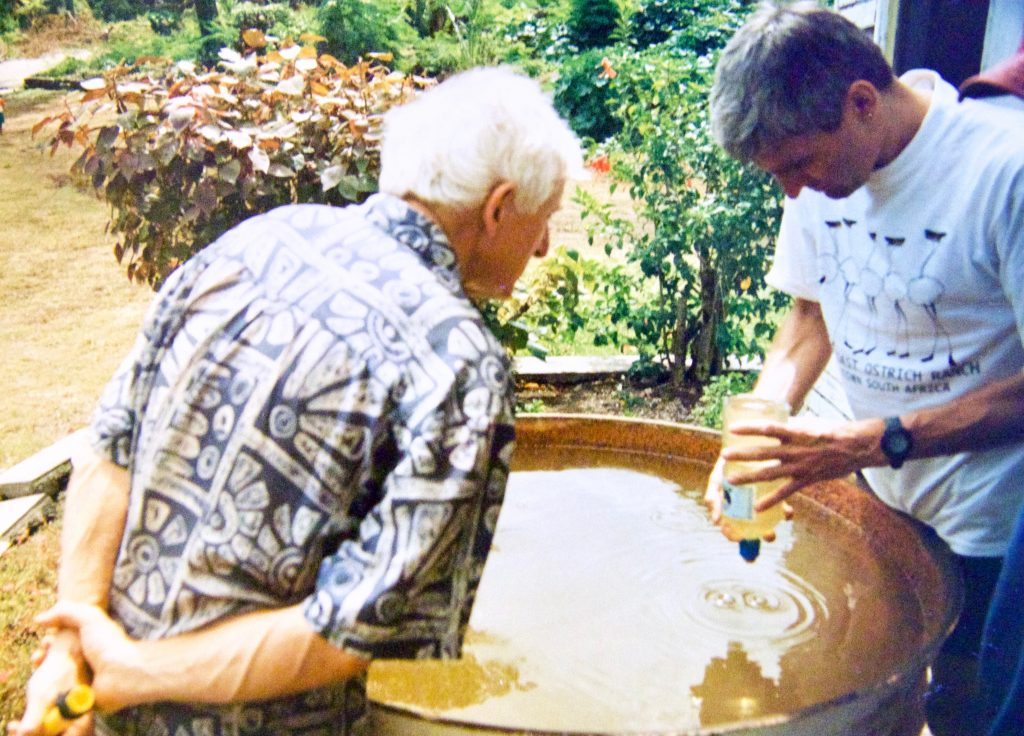
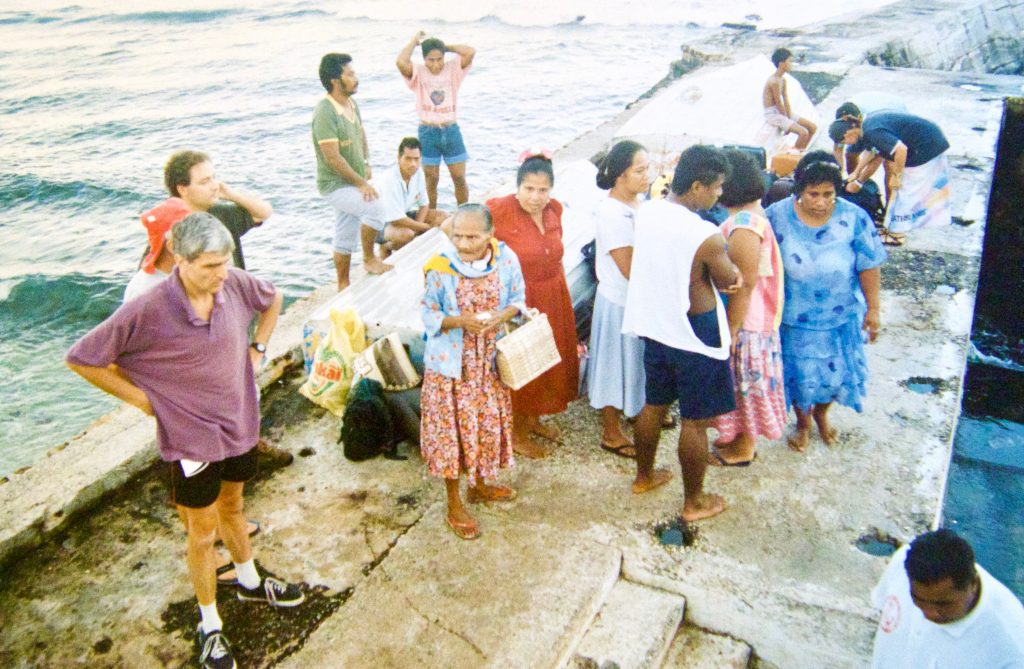
Alan is contemplating another 48-hour boat ride to get back to Tarawa …
